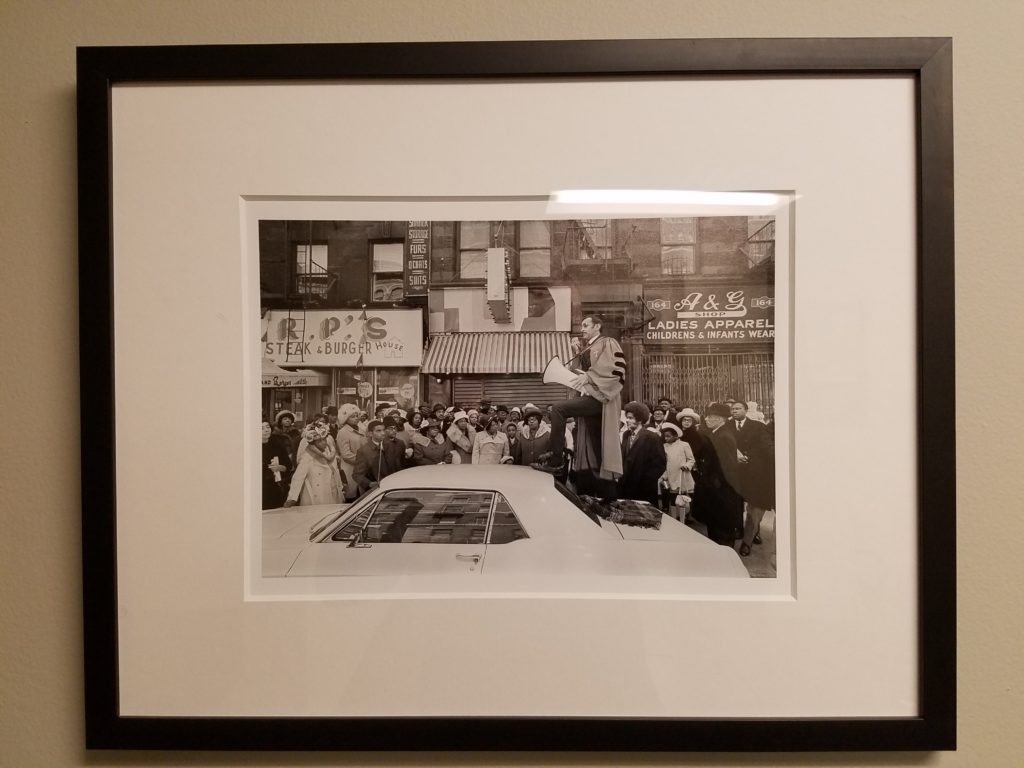(Note: This post was authored by Taylor McNeilly, Processing & Reference Archivist.) While much of our #WyattWalkerWednesday posts have focused either on Dr. Walker’s civil rights work or his lesser known activities, we haven’t done much to highlight his work at Canaan Baptist Church of Christ and the Harlem community. This week, we take a look at one of the most well known photographs of Dr. Walker and the impact that moment had on his life.
Dr. Walker was well known in Harlem, NYC, and New York State for many different reasons. He co-founded the first charter school in the state, he worked with Governor Rockefeller for a decade, he was a major proponent and developer of affordable housing in the community, and his church choir won major awards under his leadership. But Dr. Walker’s passionate sermons and the connections he drew between his religion and the world around him was perhaps most inspiring and noteworthy. He was certainly not afraid to draw concrete links between biblical topics and current events. And he was not afraid to address the general public directly about these events.
One of his most famous sermons was held not in Canaan Baptist Church of Christ itself, but on top of a car in the streets of Harlem. Dr. Walker delivered this sermon through a bull horn, standing on the trunk of a car with one leg on the roof of the cab. The car was parked outside a pizza parlor infamously known as the front for a local drug ring run by the mob in Harlem. The New York Times had a presence in the crowd around Dr. Walker as he gave this sermon, and their photograph of the event is perhaps one of the best known photos of Dr. Walker to date (a copy of which is included in the Dr. and Mrs. Wyatt Tee Walker Collection here at the University and can be seen hanging in the Rare Book Room Annex).
This sermon, delivered on April 5, 1970, focused on the community’s love for their children. Dr. Walker preached in front of a mafia-run drug front, convincing parents to steer their children away from such places and to bring them instead to the church and leadership of Christ. In his oral history recorded for the University of Richmond, Dr. Walker attributes the management of the “recreational unit” to Frank Lucas, the gangster portrayed by Denzel Washington in American Gangster. In fact, Dr. Walker said that Lucas put a hit out on Dr. Walker after that sermon — one of two hits he had on his life. (The other he attributes to black nationalists who were upset that Dr. Walker planned a state office building in Harlem.)
This story shows yet another aspect of the renowned Dr. Walker, one that is perhaps well known but overshadowed nonetheless by his work in the Civil Rights Movement of the 1950s and 1960s. Dr. Walker cared deeply for his church and his religion but also for his community. He showed this care in many different ways, including much of the development work he did throughout his life. He developed housing and education opportunities for the community, but he also did his best to protect them from those who would lead them into lives of addiction and violence.

